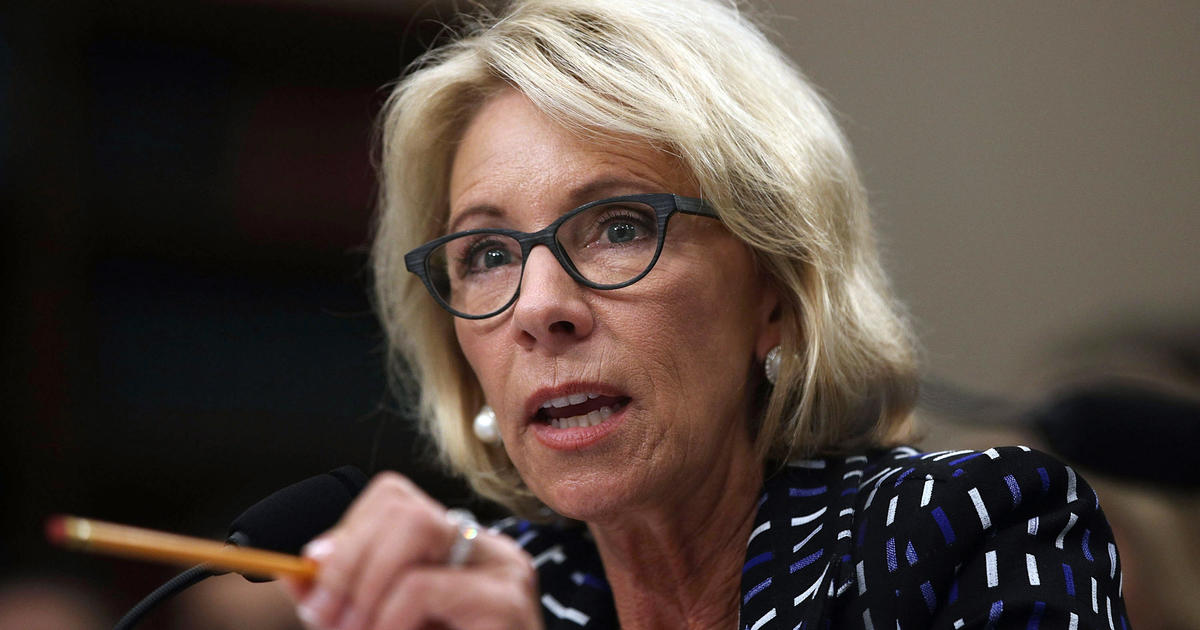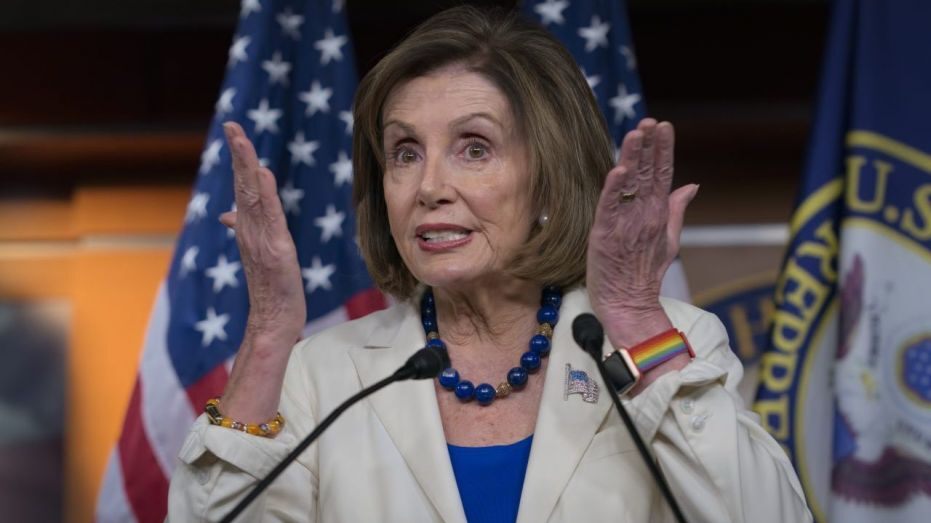
Watch the CBSN Originals documentary “Speaking Frankly: Title IX” in the video player above. The full hour special premieres Sunday, Nov. 24, at 8 p.m., 11 p.m. and 2 a.m. ET on CBSN.
On April 4, 2011, Vice President Joe Biden faced a crowd at the University of New Hampshire and announced, “We are the first administration to make it clear that sexual assault is not just a crime, it can be a violation of a woman’s civil rights.” That same day, the Department of Education’s Office of Civil Rights (OCR) delivered the strictest interpretation to date of Title IX, the 1972 law that bars sex discrimination in education, with new guidelines for how colleges should handle allegations of sexual misconduct on campus.
The update came in the form of a “Dear Colleague Letter” — in this case, a letter offering guidance to school administrators about how to adhere to the requirements of the law. The scope of Title IX has grown significantly since it was signed into law nearly five decades ago, and staying in compliance can be complicated. The letter did provide some clarity as to the Obama administration’s position on the law, but it also created an atmosphere of anxiety for some college staff. The letter itself is not the law and doesn’t prescribe comprehensive procedures for how to implement the law, but schools that failed to comply faced the threat of losing federal funding.
The 2011 Dear Colleague Letter urged schools to handle cases of sexual misconduct more promptly than ever before, stating that “If a school knows or reasonably should know about student-on-student harassment that creates a hostile environment, Title IX requires the school to take immediate action to eliminate the harassment, prevent its recurrence, and address its effects.” And it explicitly stated that schools must use “a preponderance of the evidence” as the standard for determining guilt in these proceedings; a finding of guilt means “it is more likely than not that sexual harassment or violence occurred.”
The letter also “discourages” allowing the two sides to cross-examine each other, as it may be “traumatic or intimidating” for the alleged victim.
While these points are clearly outlined in the letter, some experts contend there are many other steps in the process that are not outlined, creating a recipe for a faulty process that can have outsized impacts on a student’s future, particularly for those accused of misconduct.
For Mark Hathaway, an attorney who specializes in representing people who claim they were not provided their rights to due process in Title IX investigations, the 2011 letter does not do enough to protect the rights of the accused, allowing schools too much flexibility.
“[The letter] doesn’t say, you know, four bullet points: You need to provide notice — adequate notice; you need to present the evidence; and you need to have a fair hearing,” says Hathaway. “None of those were laid out in a simple way that was understandable, so it allowed the schools to create rather complex, difficult-to-understand policies that don’t provide those protections.”
Prior to 2011, the number of lawsuits filed against universities for failing to provide due process in Title IX cases averaged one per year. It is expected there will be over 100 such lawsuits filed in 2019 alone.
But Brenda Adams, a senior attorney with Equal Rights Advocates (ERA), says that’s not an indication of an increase in unfair treatment of students accused of sexual harassment or assault; instead, she says, it’s the result of a concerted effort by men’s rights activists to protect alleged perpetrators.
“I can tell you from having represented survivors of sexual violence for a decade at this point: I’ve never had a client come to me and say that their primary goal was to punish the respondent. Their primary goal is almost always to protect themselves, and/or to protect other people from the conduct that they’re worried about,” she says.
“It’s hard enough for a victim to come forward. There’s social stigma. Our society simply does not believe that women tell the truth. … The rate of false reporting is no higher for sexual violence than it is for any other conduct or crime.”
When Betsy DeVos was appointed Secretary of Education by President Trump in 2017, she made it a priority to overhaul the Obama-era Title IX guidelines and institute new ones that clarify the rights of the accused. In a new Dear Colleague Letter issued in September 2017, the OCR rescinded the 2011 letter, claiming it “led to the deprivation of rights for many students.”
“Every survivor of sexual misconduct must be taken seriously,” DeVos said in announcing that the Department of Education was going to propose new rules. “Every student accused of sexual misconduct must know that guilt is not predetermined.” The department issued these proposed rules in November 2018, sparking protests from some student activists.
DeVos’s proposed guidelines tighten the definition of what constitutes sexual harassment, from behavior “sufficiently serious that it interferes with or limits a student’s ability to participate in or benefit from the school’s program,” to “unwelcome conduct on the basis of sex that is so severe, pervasive, and objectively offensive that it effectively denies a person equal access to the school’s education program or activity.” They would require that colleges allow cross-examinations, and would no longer mandate the “preponderance of evidence” standard. The proposal also explicitly states that respondents must be provided with “due process protections.”
Adams is concerned about the impact these changes could have. “One of the problems with the proposed regulations is that it essentially leaves it up to individual schools to determine what standard they want to use, as long as they use the same standard sort of across the board with all of their conduct rules,” she says. “So that means that a school could choose to apply the much higher standard of clear and convincing evidence than the preponderance of the evidence, which would of course, significantly impact things for survivors.”
However, Lara Bazelon, a law professor at the University of San Francisco and self-identified feminist and Democrat, believes that the proposed guidelines are actually a step in the right direction. “Basically what Betsy DeVos is doing, or what she’s trying to do with these regulations, is really just echoing what court after court after court has said, which I also feel like is something that gets lost in this debate. Because if you say, ‘Oh, we need more due process,’ people say, ‘Oh, you’re a Trump supporter and you love Betsy DeVos,’ which in my case could not be farther from the truth,” Bazelon says. “What I’m saying, and what I think these regulations are saying, is they’re just putting into statute what courts are demanding, which is fundamental basic due process.”
The public offered over 100,000 comments on the proposed rules in a notice and comment period that closed in February 2019. After the Department of Education reviews the comments and responds to them, the proposed rules will become official.
“They’ll be the first new regulations we’ve had on Title IX in 40 years, to reshape it in their own vision,” says Sokolow. “In some ways, they’re expanding it, in other ways, they’re contracting it, but it’s not the same Title IX that we’ve known for the last decade. So, I think that makes it hard for administrators.”
A representative from the Department of Education told CBS News that the official regulations will be issued in the fall of 2019.

